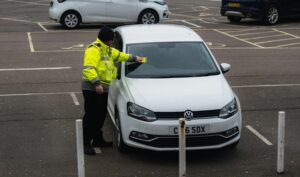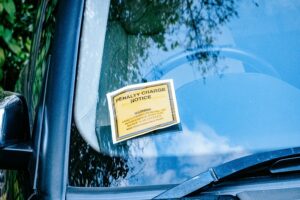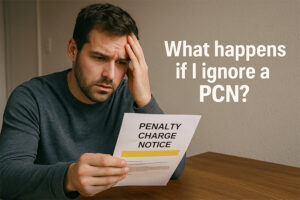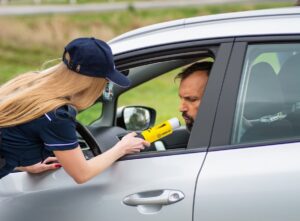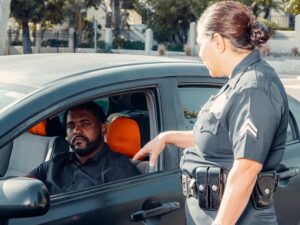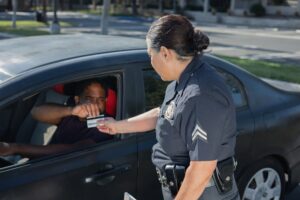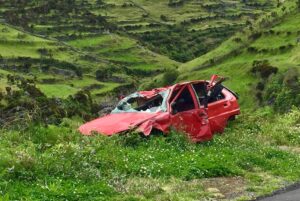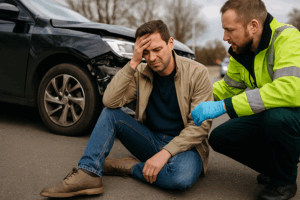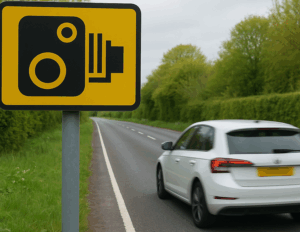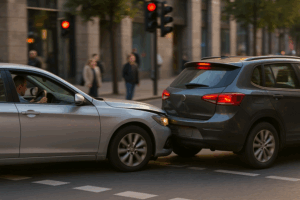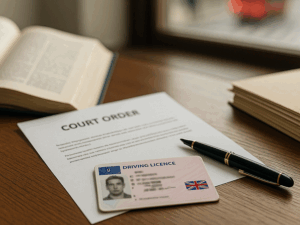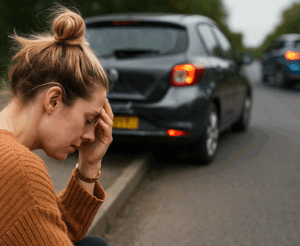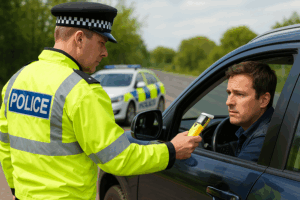What is reckless driving and how to report it?

Imagine you are driving or witnessing a vehicle speeding along, weaving between cars and endangering the lives of everyone around. In the United Kingdom, this behaviour is considered reckless driving, and the consequences can be serious, both for the victims and the driver. Consulting a solicitor specialising in driving and motoring offence cases will help you understand your rights and know exactly what steps to take.
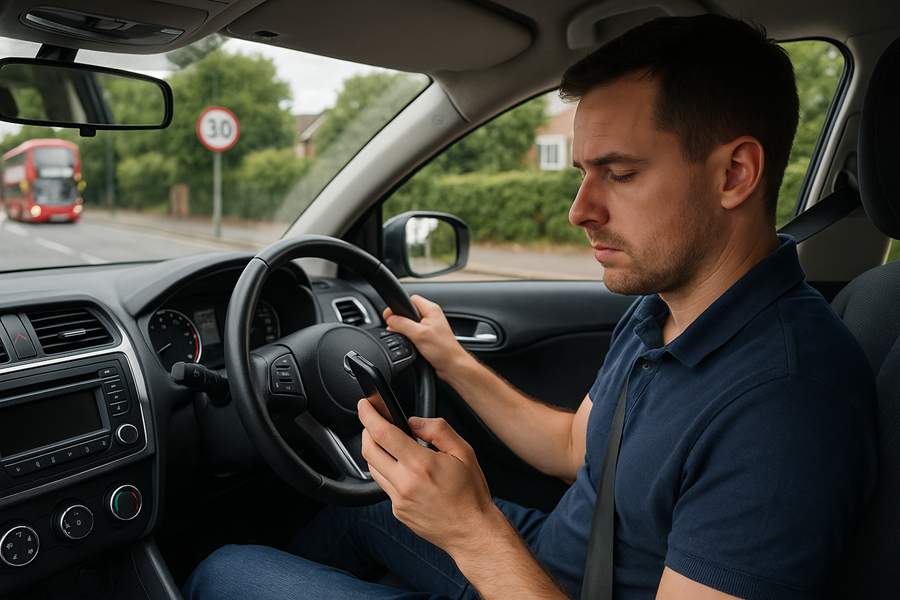
KEY TAKEAWAY: What should I do if I witness or am a victim of reckless driving?
This article guides you through the legislation, the steps to follow, the risks involved, and how to protect yourself legally while seeking justice.
What is reckless driving?
Under the Road Traffic Act 1988, reckless driving occurs when a driver shows a gross disregard for the safety of other road users. It goes beyond simple mistakes or minor negligence and can have serious legal consequences.
Typical behaviours include:
- Excessive speeding in built-up areas or on motorways.
- Ignoring traffic signals, such as running red lights or stop signs.
- Dangerous overtaking on narrow roads or in poor visibility.
- Driving while fatigued or under the influence of alcohol or drugs.
Differences between reckless, dangerous, and careless driving
- Reckless driving: A serious breach of caution putting others at risk.
Example: Swerving aggressively between cars at high speed.
- Dangerous driving: Operating a vehicle in a way that creates an obvious risk to the public.
Example: Driving through a crowded pedestrian area or ignoring icy road conditions.
- Careless driving: Minor negligence or lack of attention, still punishable under law.
Example: Failing to check mirrors before changing lanes, slightly clipping another vehicle.
What are the penalties for reckless driving in the UK?
In the UK, reckless driving is treated as a serious traffic offence under the Road Traffic Act 1988, and penalties vary depending on the severity of the case:
- Fines, penalty points, and licence disqualification: Drivers may face substantial fines, up to 11 penalty points on their licence, or even temporary or permanent disqualification.
- Imprisonment: In cases where reckless driving causes serious injury or death, prison sentences of up to 2 years (or up to 14 years in fatal cases) can be imposed.
- Aggravating factors: Penalties are significantly harsher if alcohol, drugs, excessive speeding, or repeat offences are involved.
Beyond legal sanctions, the impact can extend to everyday life: insurance premiums often increase dramatically, some insurers may refuse cover, and the driver’s personal and professional reputation can be severely damaged.
How can you report a reckless driver in the UK?
Reporting reckless driving is vital to protect other road users and to ensure offenders are held accountable. Whether you are a victim or a witness, below are the key steps to follow:
Step 1: Contact the police
If the incident poses an immediate danger, call 999 immediately. For less urgent situations, dial 101 to reach the local police. This ensures the event is officially recorded and investigated.
Step 2: Provide detailed information
The more details you share, the stronger the case. Include the date, time, and exact location, a description of the vehicle (make, model, colour), and the rehistration number. If possible, provide photographs, dashcam footage, or CCTV evidence.
Step 3: Report online
Many police forces offer an online service where you can report reckless driving quickly and securely. This is especially useful if you cannot call immediately.
Step 4: Act promptly
Submitting your report soon after the incident helps the authorities trace the driver, gather evidence, and take timely legal action.
What are your rights and what compensation can you claim as a victim?
If you are a victim of reckless driving in the UK, you are entitled to both legal protection and financial compensation. These rights aim to safeguard your well-being and help you recover from the impact of the incident.
Right to protection and justice
Victims can expect the police to investigate and, where appropriate, prosecute the offender. Measures may also be taken to prevent repeat offences, ensuring greater road safety.
Right to compensation
You may be eligible for financial compensation covering:
- Medical costs and rehabilitation expenses.
- Vehicle repair or replacement costs.
- Loss of earnings and other financial losses.
- Pain, suffering, and emotional distress.
Access to support
Victims can also receive help from charities, road safety organisations, or public schemes such as the Criminal Injuries Compensation Authority (CICA), which provides financial assistance in certain cases.
Do I need a reckless driving lawyer?
Whether you are a victim, a witness reporting an incident, or the driver facing charges, a reckless driving lawyercan provide tailored guidance and support.
If you are a victim:
- Advice on claims: Explains how to claim compensation for medical costs, vehicle damage, and other losses.
- Assistance with evidence: Helps gather and organise photos, videos, and witness statements.
- Representation: Can communicate with insurers or the court on your behalf.
If you are reporting an incident:
- Guidance on legal reporting: Advises how to submit reports correctly to police or online services.
- Support for follow-up: Helps ensure your report is taken seriously and followed up appropriately.
If you are the driver/accused:
- Case review and defence preparation: Examines evidence, prepares legal strategy, and negotiates potential penalties.
- Court representation: Defends you in court, presents arguments, and handles witnesses.
- Advice on legal consequences: Explains fines, licence points, insurance impact, and potential imprisonment.
FAQs
Can I claim compensation if the driver is unknown or uninsured?
Yes, it is possible to claim compensation through the Criminal Injuries Compensation Authority (CICA) or the Motor Insurers’ Bureau (MIB).
Do I need to provide my contact details when reporting an incident to the police?
Yes, but you can request that your identity remains confidential if necessary. The police will advise on the best way to proceed.
Are there ways to reduce penalties or points on my licence?
In some cases, attending rehabilitation or driver awareness programmes may help reduce points or fines imposed by the court.
Every incident of reckless driving is a reminder that vigilance saves lives. Staying informed and responding carefully allows you to take control of the situation and protect both your safety and that of others.
Make our roads safer!
Every report and responsible action counts: follow the Highway Code, contact Qredible’s network of solicitors for expert legal guidance, and protect yourself as well as other road users.
KEY TAKEWAYS:
- Understand reckless driving: Knowing the difference between reckless, dangerous, and careless driving is essential to respond appropriately.
- Report promptly: The sooner an incident is reported, the more effective it is for legal action, compensation and protections.
- Know your rights: Both victims and drivers should be aware of their legal options, compensation, and protections.
- Act responsibly: Gathering evidence, following procedures, and taking the right steps helps protect your interests and those of other road users.
Articles Sources
- legislation.gov.uk - https://www.legislation.gov.uk/ukpga/1988/52/section/2
- legislation.gov.uk - https://www.legislation.gov.uk/ukpga/1988/52/section/2A
- legislation.gov.uk - https://www.legislation.gov.uk/ukpga/1988/52/section/3ZA
- legislation.gov.uk - https://www.legislation.gov.uk/ukpga/1988/52/contents
- cps.gov.uk - https://www.cps.gov.uk/crime-info/driving-offences
Do you need a solicitor?
Find a solicitor on Qredible in just a few easy steps












